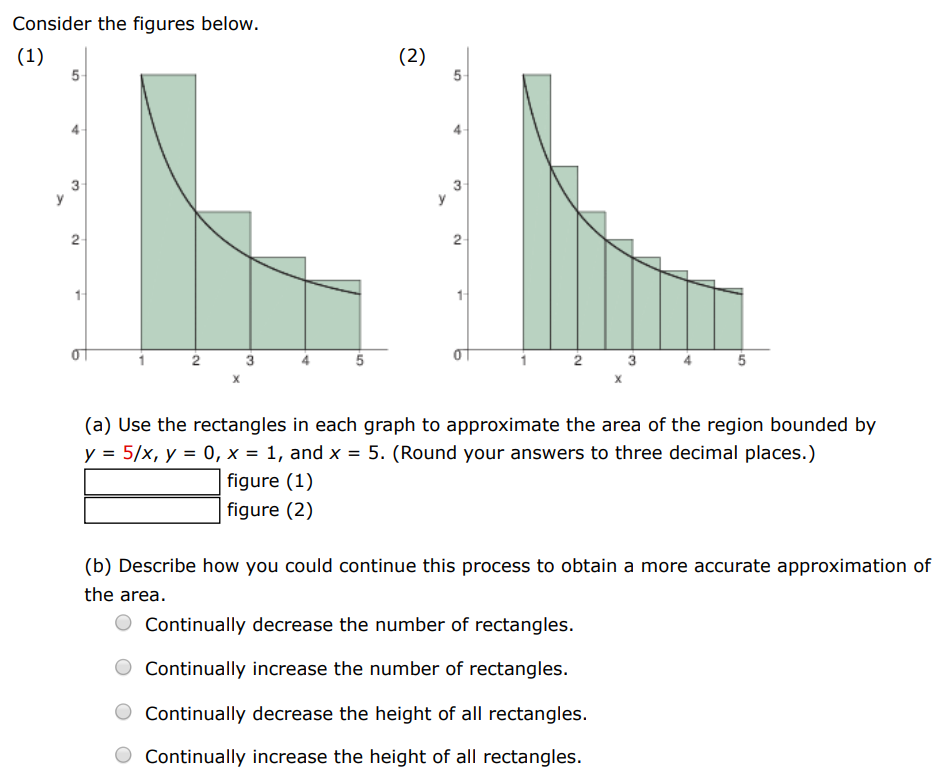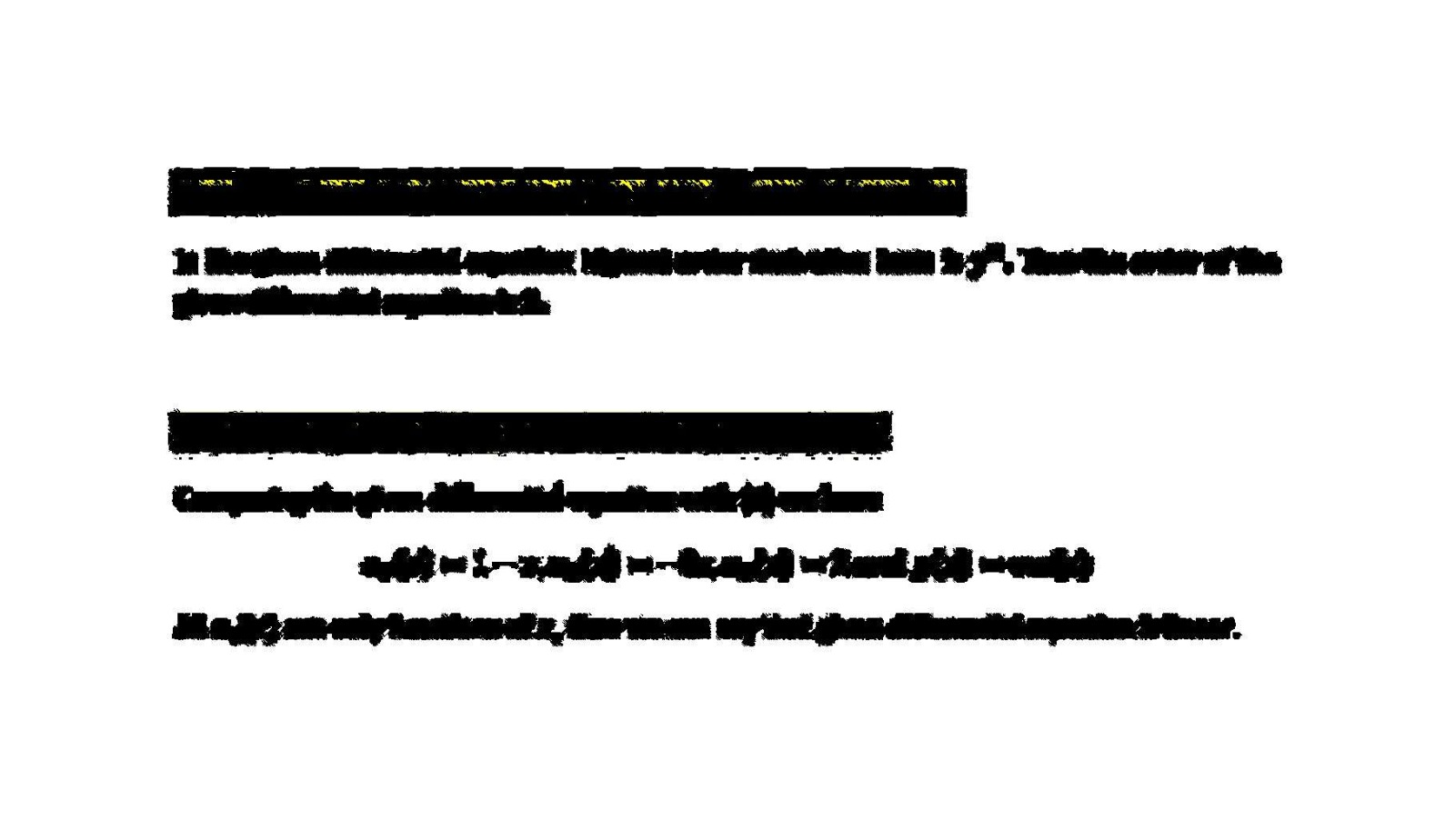Consider the figures below. (1) (2) (a) Use the rectangles in each graph to approximate the area of the region bounded by y = 5/x, y = 0, x = 1, and x = 5. (Round your answers to three decimal places.) figure (1) figure (2) (b) Describe how you could continue this process to obtain a more accurate approximation of the area. Continually decrease the number of rectangles. Continually increase the number of rectangles. Continually decrease the height of all rectangles. Continually increase the height of all rectangles.



You'll get a detailed, step-by-step and expert verified solution.
 Work With Experts to Reach at Correct Answers
Work With Experts to Reach at Correct Answers